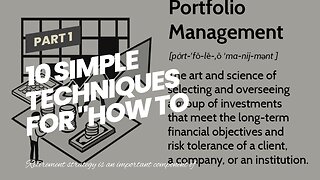Retirement Planning and Strategies
Retirement planning is the process of setting financial goals and creating a strategy to ensure you have enough income and savings to support your desired lifestyle during retirement. Here are the key steps and considerations for effective retirement planning:
Determine Your Retirement Goals:
Start by envisioning your ideal retirement lifestyle. Consider factors such as where you want to live, your desired activities, travel plans, and any specific financial goals.
Estimate Your Retirement Expenses:
Calculate your expected retirement expenses, including housing, healthcare, food, transportation, entertainment, and any other costs. Be sure to account for inflation, which can erode your purchasing power over time.
Assess Your Current Financial Situation:
Take stock of your current financial assets, including savings, investments, retirement accounts (e.g., 401(k) or IRA), and other income sources. This will provide a baseline for your retirement plan.
Set a Retirement Savings Target:
Determine how much money you need to save to meet your retirement goals. Consider using retirement calculators or consulting with a financial advisor to estimate this amount.
Create a Retirement Savings Plan:
Develop a strategy for saving and investing for retirement. Set a regular savings schedule and contribute to retirement accounts such as 401(k)s, IRAs, or other tax-advantaged plans.
Take Advantage of Employer Benefits:
If your employer offers a retirement plan, like a 401(k), take full advantage of it. Contribute at least enough to receive any employer match, as this is essentially free money for your retirement.
Diversify Your Investments:
Diversify your investment portfolio to spread risk. Consider a mix of stocks, bonds, and other assets that align with your risk tolerance and time horizon.
Manage Debt:
Prioritize paying down high-interest debt, such as credit card balances, before retirement. Reducing debt can free up more money for retirement savings.
Consider Healthcare Costs:
Factor in healthcare costs when planning for retirement. Medicare typically covers some healthcare expenses, but additional insurance or savings may be necessary for comprehensive coverage.
Plan for Social Security:
Understand how Social Security benefits work and when you can start claiming them. Delaying your Social Security benefits can result in larger monthly payments.
Emergency Fund and Contingency Planning:
Maintain an emergency fund to cover unexpected expenses and avoid tapping into your retirement savings prematurely.
Review and Adjust Your Plan:
Regularly review your retirement plan and adjust it as needed based on changes in your financial situation, goals, or market conditions.
Consider Longevity Risk:
Plan for the possibility of living longer than expected. This may require more savings to ensure your retirement funds last throughout your lifetime.
Seek Professional Advice:
Consider consulting with a certified financial planner or retirement specialist who can provide personalized advice and help you create a comprehensive retirement plan.
Estate Planning:
Address estate planning matters, including wills, trusts, and beneficiary designations, to ensure your assets are distributed according to your wishes upon your passing.
Remember that retirement planning is an ongoing process, and it's never too early or too late to start. The key is to be proactive, set realistic goals, and consistently work toward achieving them. Starting early and maintaining discipline in your savings and investment strategies can greatly enhance your financial security and peace of mind during retirement.
-
 19:22
19:22
RetireSharp
1 year agoRetirement Budget Planning
1661 -
 0:18
0:18
Cmckenzie5808
6 months agoRetirement Planning
1 -
 7:20
7:20
pf101
1 year agoRetirement Planning: How to Ensure You Have Enough Money to Retire Comfortably
3 -
 23:55
23:55
RetiredLyfe
8 months agoRetirement Planning
55 -
 7:11
7:11
Wealth Wizardry
1 year agoMastering Retirement Financial Planning Essential Steps and Tips for a Secure Future
10 -
 9:13
9:13
Website with WordPress
1 year agoTop Guidelines Of "Retirement Planning: Understanding Different Investment Options"
41 -
 5:45
5:45
Website with WordPress
1 year ago10 Simple Techniques For "How to Maximize Your Retirement Savings Investment Plan for Early Ret...
44 -
 3:05
3:05
FINANCIAL ISSUES
1 year agoRetirement Planning
6 -
 28:07
28:07
RetireSharp
1 year agoStrategies for Retirement Income
89 -
 7:45
7:45
Website with WordPress
1 year agoRetirement Planning: The Ultimate Guide for 2022 Things To Know Before You Buy
22